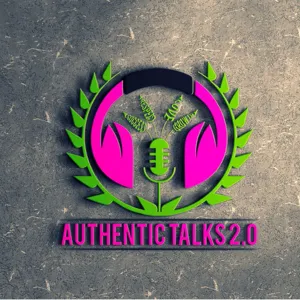Podcast Summary
Exploring mental health and philosophical insights through Twitch streaming: During uncertain times, streaming on Twitch can provide a platform for charitable fundraising, engaging with audiences, and sharing personal insights on mental health and philosophical perspectives.
The host of the Blind Buy Podcast, Brendon, has been exploring new creative avenues during the uncertain times, specifically through streaming on Twitch. He has been using the platform to raise money for charity and engage with his audience in a more relaxed, conversational setting. Additionally, he reflects on the philosophical impact of the current societal situation due to the coronavirus pandemic and shares his personal experiences with mental health, acknowledging his limitations as a non-qualified psychologist but offering insights based on his own application of psychological principles. The podcast episode aims to provide a philosophical assessment of the current times and share personal experiences related to mental health, inspired by the unique circumstances of the ongoing pandemic.
Provide distraction and entertainment during times of crisis: During crises, focus on coping and distraction rather than introspection and negative emotions
During times of sudden loss and change, such as the coronavirus pandemic, it's important to provide distraction and entertainment rather than asking people to introspect and focus on their mental health struggles. This is due to the overwhelming anxiety and uncertainty that comes with such situations, which can make it difficult for individuals to cope and find meaning on a day-by-day basis. Defense mechanisms, which are our brain's way of protecting us from painful truths, can be both helpful and harmful, but their primary role is to help us cope in the short term. In the context of the pandemic, the focus should be on coping and finding ways to distract oneself rather than delving into introspection and negative emotions.
Understanding the World's Response to the Pandemic through the Five Stages of Grief: Initially, denial and panic buying. Then, bargaining with conspiracy theories, followed by anger and depression, manifesting in protests and civil unrest. Throughout, consumerism played a significant role in coping mechanisms.
The world's collective response to the coronavirus pandemic can be understood through the lens of the five stages of grief: denial, anger, bargaining, depression, and acceptance. Initially, there was denial and minimization, leading to panic buying as a coping mechanism. Then, instead of anger, there was bargaining with the truth through conspiracy theories. Eventually, anger and depression came together, manifesting in protests and civil unrest. Throughout it all, our relationship with consumerism played a significant role in how we denied and coped with the fear and uncertainty of the pandemic.
Navigating Uncertainty with Acceptance: Amidst pandemic and civil unrest, acceptance allows for focus on mental health and introspection.
The current global situation, marked by the COVID-19 pandemic and the resulting civil unrest, can be seen as creating a unique backdrop for individual experiences. This backdrop, filled with uncertainty, fear, and lack of leadership, has led many people to a state of acceptance. This acceptance, in turn, allows for a focus on mental health and introspection. The speaker, who has personally experienced the trauma of the pandemic and the loss of livelihood in the entertainment industry, is now moving towards acceptance and using creativity to adapt. Society as a whole is also moving towards acceptance, opening up slowly, and adjusting to the new normal of living with coronavirus. It's important to acknowledge the impact of these events on mental health and to allow for introspection and self-care within the context of acceptance.
Adapting to new shopping behaviors during the pandemic: Though external actions like wearing masks and social distancing may have initially caused fear or unpleasantness, they have become autonomous and no longer impact our internal feelings or worth.
Our external actions, such as wearing a face mask or following social distancing rules, do not dictate our internal world, including our feelings and worth. The speaker shares his personal experience of adapting to new shopping behaviors during the pandemic, emphasizing that these actions have become autonomous and no longer cause fear or unpleasantness. He also reflects on the societal and cultural implications of the pandemic and plans to explore this topic further in his upcoming live streams. Additionally, the speaker shares his independence as a podcast creator, explaining that he turns down sponsors who don't align with his values or content. He emphasizes that the podcast is a space for failure, exploration, and discussing ideas that he finds deeply interesting, regardless of popularity. The speaker also shares some interesting facts during the "Flexitone Pause," which is a brief musical interlude in the podcast.
Maintaining creative independence through Patreon funding: The podcast creator values creative freedom over sponsorship deals and uses Patreon for funding, allowing him to maintain control over content and make it a full-time job, while ensuring ethical compensation for patrons and free access for others.
The podcast creator values creative independence and audience support over sponsorship deals and trending topics. He shared his past experiences in television, where creative control was taken away when sponsors demanded specific content. Instead, he relies on Patreon funding, which allows him to maintain complete control over the podcast's content and make it a full-time job. He also emphasized the importance of ethical compensation, where patrons pay for the work, and others who can't afford it can still access it for free. Additionally, he mentioned his upcoming Twitch channel and a monthly drawing for patrons as a token of appreciation. The creator also highlighted his fascination with how countries' histories and identities influence their responses to the coronavirus pandemic. He criticized the American response as atrocious and contrasted it with Ireland's, emphasizing the importance of understanding historical contexts to make informed judgments.
America's frontierist past shaping its response to coronavirus: America's expansionist mindset, rooted in distrust of authority and belief in individual freedom, hinders effective public health measures during the coronavirus pandemic
The current divisive response to the coronavirus in America can be traced back to its founding culture of frontierism. This expansionist mindset, rooted in a deep distrust of authority and a belief in individual freedom, has evolved into an attitude that prioritizes personal gain over public health. The resistance to wearing masks, social distancing, and following expert advice reflects this historical distrust of power and the government. Additionally, the belief that diseases are a natural part of life and will only affect the vulnerable perpetuates this individualistic mindset. Contrastingly, the British response to the virus reflects a more centralized, consensus-driven approach, where the government's messages and the contract of consent between the people and the government are aligned. America's frontierist past continues to shape its present, making it a challenge to implement effective public health measures during a global crisis.
Historical contexts shape countries' responses to the pandemic: Historical backgrounds and attitudes towards power and marginalized groups impact present-day pandemic responses, with some prioritizing the wealthy over the poor and others focusing on community and guidelines.
The responses to the coronavirus pandemic by different countries can be linked to their historical contexts and attitudes towards their own people and others. For instance, Britain's initial response, driven by its past as a colonial power, led to the disastrous "herd immunity" strategy that prioritized the health of the wealthy over the poor. In contrast, Ireland's response, shaped by its history of being ruled by Britain, showed a positive and effective approach to controlling the virus, with a focus on community and adherence to guidelines. These examples illustrate how historical contexts and attitudes towards power and the marginalized continue to influence present-day decision-making.
Ireland's Post-Catholic Mentality in the Coronavirus Response: Ireland's history of external authority control has led to an acceptance of infantilizing relationships with power figures during the coronavirus pandemic.
The Irish response to the coronavirus pandemic can be understood through the lens of post-Catholic mentality, rather than post-colonialism. The speaker argues that despite gaining political independence from Britain, Ireland handed power to the Catholic church and allowed it to abuse and control the population similarly to how the Brits had. In the coronavirus response, the government withheld information from the public for their safety, and the people accepted this infantilizing relationship. This behavior stems from Ireland's history of handing power to external authorities and the lasting impact of centuries of being told that their culture is inferior. It's essential for the Irish to be aware of this mentality to change it and not allow it to continue defining their behavior.
Ireland's Post-Independence Reverence for Doctors, Teachers, and Priests: Ireland's cultural reverence for authority figures, rooted in Catholicism, led to unwavering support for the government during the coronavirus crisis and harsh backlash against criticism. The government's use of a reward system further reinforced this dynamic, reflecting the societal expectation for guidance and security.
Irish society, post-independence, held doctors, teachers, and priests in high esteem, almost to the point of idolization. This cultural phenomenon, influenced heavily by Catholicism, led to a mentality of unquestioning obedience and reverence towards these figures. This dynamic was observed during the coronavirus crisis, where the government, led by a doctor (Leo Varadkar), was met with unwavering support and criticism was met with harsh backlash. The government also employed a reward system, appealing to the population's desire for approval and reassurance, similar to the relationship between children and their parents or teachers. This dynamic, rooted in Ireland's post-colonial history, demonstrates the societal expectation for authority figures to provide guidance and security, even if it means relinquishing personal autonomy.
Ireland's response to the pandemic: acting like children: People are demanding transparency and accountability from the government as the relationship between citizens and authorities shifts during the pandemic.
During the coronavirus pandemic, people in Ireland have been acting like children, handing over their power to authorities and accepting rules without question, much like the old Irish response of behaving themselves to get a half day off from school. This dynamic, while effective in flattening the curve, is toxic and dysfunctional as it prevents accountability and transparency. As we move into a stage of acceptance, people are starting to demand more information and question the government's decisions, especially regarding nursing homes and direct provision. The relationship between the people and the government is changing, and the lack of transparency will no longer be tolerated. It's important for individuals to hold themselves and the government accountable and to demand answers. Additionally, the government's passive-aggressive approach to implementing safety measures, such as wearing face masks, is not an adult way to communicate and should be met with skepticism and a demand for clear and direct information.
Wearing masks is crucial in preventing the spread of coronavirus, just like underpants in Aldi: Masks prevent virus spread, normalize their use, have evidence from Asian countries, and consider budget-friendly, flexible TriTerm Medical plans for health coverage
Wearing face masks is crucial in preventing the spread of coronavirus, just as wearing underpants is important in preventing slips in a crowded place like Aldi. The speaker emphasizes that even if everyone else is wearing a mask, one unmasked person can still cause significant harm. He encourages normalizing the use of face masks and looking at the evidence supporting their effectiveness, particularly in Asian countries where they have been used for years. The speaker also emphasizes the importance of having health insurance, as the future is uncertain and UnitedHealthcare TriTerm Medical plans offer budget-friendly, flexible coverage for those in between jobs or who missed open enrollment. These plans last nearly 3 years in some states and provide access to a nationwide network of doctors and hospitals.






